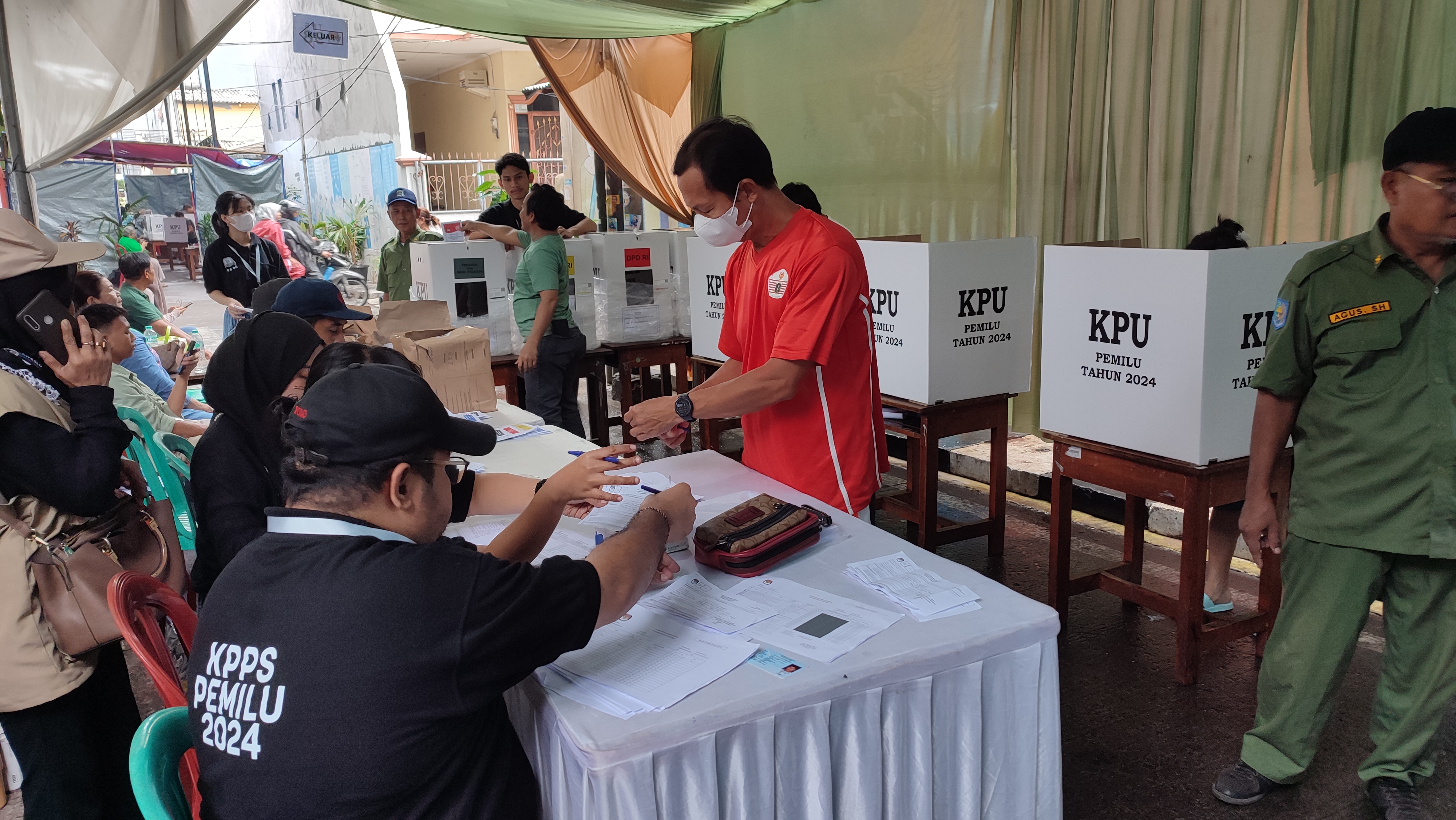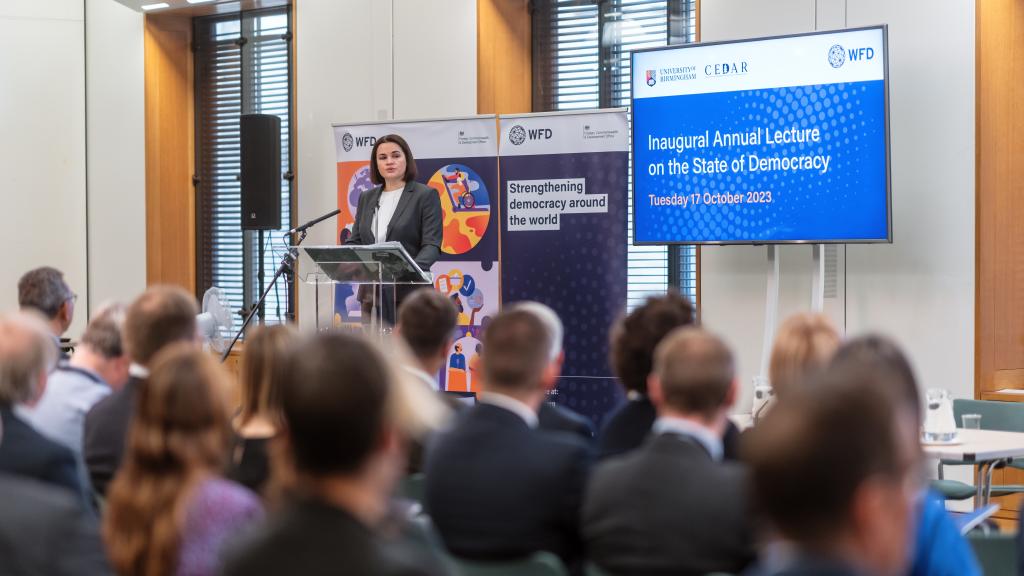Past events

This free 3-day conference brought together the democracy support and environmental communities. Together, we can unlock the potential of the environmental democracy approach.
The global environmental crisis and rising authoritarianism are two of the most pressing challenges we face.
Despite overwhelming evidence about the impact of humans on the environment, and unprecedented international consensus on the need for urgent action, the world has so far failed to take adequate steps to avert this crisis.
At the same time, democracy itself is under threat. The recent US-led Summit for Democracy aimed to galvanise action across the democratic world in response to creeping authoritarianism.
In this context, democratic governments must lead societies towards accelerated technological and behavioural transformation that leaves no one behind. Failure to respond effectively to the climate and environmental crisis risks worsening the already falling public confidence in the ability of democratic governments to deliver for citizens.
Democratic governments need to ensure that democracy delivers worldwide, both for citizens today and for future generations.
This conference explored how we can get to work.
To find out more about the conference proceedings and outcomes read the Chair's summary.

Join WFD for this side event as part of the NGO CSW66 Forum.
This panel will share learnings from various countries’ efforts to include women, particularly from indigenous communities and other minorities, into environmental decision-making processes and leadership.
Huge changes to all levels of society, politics and businesses are required to avoid the most devastating effects of climate change and environmental degradation. This means we need durable, effective and responsive democratic institutions, accountable systems of governance, and strong political will.
The event will consider how the three pillars of environmental democracy, transparency, participation and justice, are vital to empower those which are made most vulnerable by climate change.

Through their work, civil society is directly connected to community members and is aware of changes and impact laws have on the people they are meant to serve.
To support civil society playing a key role in democratic governance, WFD and Kaleidoscope Trust developed a guide on post-legislative scrutiny for civil society organizations, that details the steps civil society can take to meaningfully contribute to legislative impact assessments.
At this seminar, the authors of the guide, Grazia Careccia and Alicia Wallace, will present the research approach informing the guide, present the findings emerging from piloting the guide in several countries, and share practical strategies for civil society to engage in post-legislative scrutiny.
The event is open to civil society organisations, students, academics, parliamentary staff and other interested individuals in the UK. The seminar takes place as an IN-PERSON event at the premises of the Institute of Advanced Legal Studies (IALS) in London. Following the one-hour seminar, participants will be invited to networking drinks at the IALS.
Online participation won’t be foreseen. Prior registration is required for all attendees. Any registered participant who feels unwell or has covid-symptoms on the day of the event is expected to cancel participation.
Programme:
Welcome
- Dr Constantin Stefanou, IALS Director of Taught Programmes and Director of Sir William Dale Centre for Legislative Studies, Institute of Advanced Legal Studies (IALS) of the University of London.
- Franklin De Vrieze, Senior Governance Adviser at Westminster Foundation for Democracy (WFD)
Presentation of the publication and findings from piloting
- Grazia Careccia, human rights expert, co-author of the publication
- Alicia Wallace, gender and democracy researcher, co-author of the publication
Response
- Parliamentary official
- Dr Maria Mousmouti, Associate Research Fellow, Institute of Advanced Legal Studies, University of London
Q&A with the audience, facilitated by Sophia Fernandes, Senior Adviser Political Inclusion at WFD.
Closing: Sophia Fernandes, Senior Adviser Political Inclusion at WFD.
Networking drinks.

Parliaments globally have the important responsibility of engaging in effective oversight of government actions through inclusive representation and informed policymaking. In crisis contexts, these responsibilities are even more critical.
The COVID-19 pandemic continues to require governments to deliver resources to impacted and underserved citizens. Additionally, with growing threats from climate change and global conflicts, governments everywhere will inevitably be confronted by crises, and must be prepared to support citizen security and recovery in those times of need.
As the representative branch of the government, parliaments remain on the front lines in ensuring resources reach citizens during a crisis in a timely manner.
In this session, organised with the National Democratic Institute as part of the AGORA Parliamentary Development Community of Practice, members of parliament, citizen groups, and experts, will convene to discuss the issue of “parliamentary accountability” as it relates to crisis contexts.
Specifically, the issue will be explored through three key themes:
- foundations and globally-upheld norms in parliamentary accountability good practices;
- parliament’s role in maintaining accountability of government service delivery in a crisis;
- mechanisms that ensure parliament remains accountable to its core mandates to ensure effective action in crisis contexts.
The session will be conducted primarily in English. Some presentations may be offered in a speaker’s host language with interpretation available for participants. Participants may also request the translation of program materials following the session.
The event will take place from 8 am to 11 am ET which is 2pm to 5pm CET

Sunset clauses were in high demand in COVID-19 acts and regulations, with the main function to ensure that the restrictive measures adopted to respond to the pandemic extended no longer than necessary.
To launch the latest publication in WFD's PLS series, this event will examine the relevance, mechanics and the practical lessons learned of using sunset clauses.

This event marks the publication of the latest research in WFD’s anti-corruption and integrity series, Anti-corruption and gender: the role of women’s political participation. Dr Ortrun Merkle will outline the project, drawing on three important case studies from Ukraine, Kenya and Indonesia.
Although much remains to be explored, the research shows clear linkages that are important to understand for politicians, anti-corruption advocates, and those working on increasing women’s representation in political office.

Join us on Friday, 14 March 2025, for an inter-active webinar, organised by the Global Community of Practice on PLS in cooperation with the Parliament of South Africa, Chamber of Deputies of Chile and the University of London, on gender-sensitive impact assessments of legislation.

The Electoral Integrity Project and WFD are pleased to announce a significant three-day online workshop examining electoral reform and democratic practices globally.

The Democracy Action Partnership (DAP) 2024 focuses on WFD’s extensive research on the Cost of Politics - the costs of running for and maintaining political office.

Join us for an engaging webinar with Dr. Tom Caygill, author of a recent report on Post-Legislative Scrutiny (PLS) in the Scottish Parliament. Discover how PLS serves as a powerful tool to assess the real-world impact of legislation long after it becomes law.

